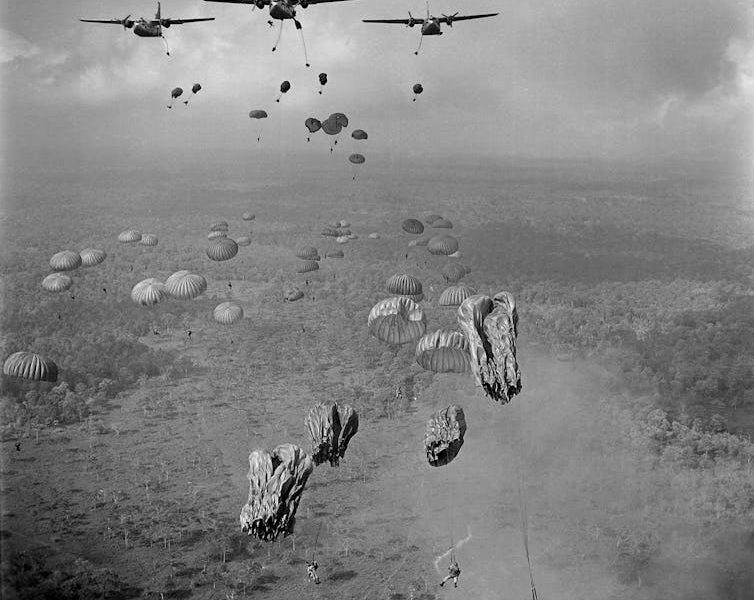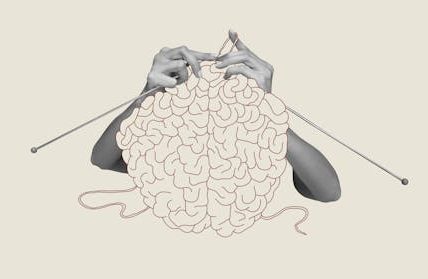From oil to cod – ISRF event explores what yesterday’s empires reveal about today’s wars
Modern warfare is high-tech, violent and often incomprehensible. It is also widespread with one in eight people globally exposed to conflict last year.
The shocking images which daily fill news reports and social media feeds can leave us feeling confused and helpless. But researchers can at least offer context to help us better understand these turbulent times.
This was the motivation behind a recent series of events organised by the Independent Social Research Foundation (ISRF), which The Conversation UK works with via its subsidiary Universal Impact. And a common theme was the argument that imperialism laid the foundations for many contemporary power struggles.
In these lectures on decolonisation, Martin Thomas, Julia Laite and Adam Hanieh detailed how the world we know today was shaped by the rise of empire.
For centuries, the world’s wealthiest nations forcibly acquired territory and access to natural resources, not least oil.
For Adam Hanieh oil runs through the history of Empire and decolonisation.
Adam Hanieh, Professor of Political Economy and Global Development at the University of Exeter, explained how oil propelled the allies to victory in the First and Second World Wars. Not just by fuelling their militaries but also as the raw material behind the petrochemicals essential for developing the atomic bomb.
Indeed, as Hanieh revealed, the biggest individual institutional consumer of oil remains the US military. And yet its emissions were neither counted in the Kyoto Protocol nor the Paris Agreement.
To ensure ongoing control over oil supplies, Hanieh told how the US has forged connections in the Middle East, establishing two pillars of “influence and domination”: Israel on one side and the Gulf States, and particularly Saudi Arabia, on the other.
He said that the Middle East is one of the world’s biggest importers of arms, mainly from the US, so “petrodollar wealth is recirculating into American markets and American war making companies”.
“The centrality of both war making and the ways our lives are run through global finance gives the Middle East a central role in American power globally,” Hanieh said.
“One of the root causes of conflict, of violence, is the kind of deep ways in which global power depends upon the Middle East and controlling and building alliances with those states.”
Martin Thomas looked at how successful decolonialisation has been in remaking the modern world.
According to Martin Thomas, this global financial order has thwarted many aspirations of the former colonies which fought for self-determination after the Second World War.
Thomas, Professor of Imperial History at the University of Exeter, explained how many newly independent countries were embroiled in “Cold War rivalries which condemned third world states to subservience to the rich world’s economic demands”.
Thomas views the Soviet Union as “undoubtedly an empire”. He argued that following its fall, Russia’s governing elite was unable to “come to terms with the reality of a decolonising world”. Consequently, it is now waging a “war of imperialism” in Ukraine.
US paratroopers carrying out a strike in the Tay Ninh province of South Vietnam in 1963.
Everett Collection/Shutterstock
“Central to President Putin’s claims is the fact that in his, or in the Russian leadership’s, world view Ukraine is not an authentic nation state that self-determination could legitimately apply to,” Thomas said.
“I don’t accept that. I don’t think most Western governments accept that. And therefore I do see this as, crudely put, imperial bullying with dreadful human consequences.”
Ukraine’s rare mineral reserves have been at the centre of the war, as a reason for both the Russian invasion, as well as the involvement of the United States as a self-styled peacemaker. Indeed, if there’s a consistent theme running through the history of colonialism it is this struggle over natural resources.
Another example is Newfoundland where, as Julia Laite, Professor of History at Birkbeck, University of London, explained, cod was another prized commodity of empire. This unfashionable but extremely profitable product provided, in its dried salted form, one of the main food sources for enslaved people working on plantations.
Laite revealed how Newfoundland — which became England’s “very first transatlantic colonial possession” in 1583 — was one of the earliest places “to experience the environmental cost of this avarice”.
It was also the site of one of the most “totalising destructions of an indigenous culture in British imperial history” with Laite explaining how indigenous culture of the Beothuk people was destroyed by the “particular brand of negligent extractive colonialism” practised in Newfoundland.
Julia Laite’s family has been on Newfoundland since 1635.
Laite told the story of Shanawdithit, the final known living member of the Beothuk, and how her artwork is the last remaining first-hand account of their history and culture.
“Shanawdithit’s story is also the story of these imperial entanglements, the violence and the greed that underwrote them, and the price that people and the planet paid.
“She single-handedly ensured the survivance – however fragile and slight – of an entire culture of people. She reminds us of what an act of hope it is to tell a story, even at the end of the world.”
The ISRF’s mission is to find new solutions to some of today’s most pressing social issues.
Few things seem more pressing than halting the bloodshed in Ukraine, Palestine and Sudan. But while peace currently seems unimaginable – the end of empire once seemed unimaginable, too.
Universal Impact offers specialist training, mentoring and research communication services – donating profits back to The Conversation UK, our parent charity. If you’re a researcher or research institution and you’re interested in working together, please get in touch – or subscribe to UI’s weekly newsletter to find out more. Universal Impact is a partner of the ISRF


